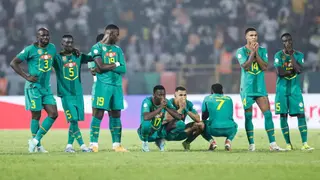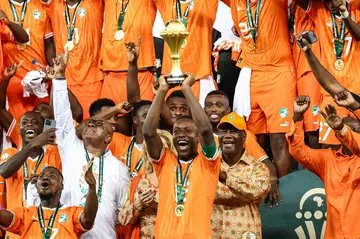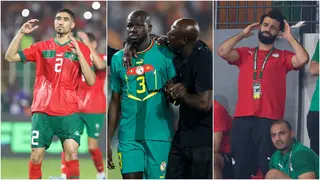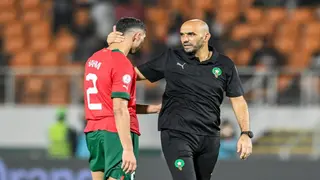AFCON 2023: 'Defending Champion curse' strikes as Ivory Coast eliminate Senegal on penalties
Football
AFCON 2023 has concluded, leaving a lasting impression as arguably the greatest Cup of Nations tournament in the continent's history.
The event was packed with drama, sensational goals, astonishing comebacks, and, notably, an exceptionally high standard of football.
Sports Brief delves into some intriguing facts and figures that distinguish AFCON 2023 from its predecessors.

PAY ATTENTION: stay informed and follow us on Google News!
CAF disclosed a significant 40% boost in prize money compared to the previous tournament. Champions Cote d'Ivoire are set to receive an impressive $7 million as their reward, the Punch reported.
AFCON 2023: 'Defending Champion curse' strikes as Ivory Coast eliminate Senegal on penalties
Football
Nigeria, securing second place, will pocket $4 million. Meanwhile, the two semi-finalist teams, South Africa and the Democratic Republic of Congo, will each receive compensation of $2.5 million.
Before 2019, AFCON typically featured 16 teams or fewer. Consequently, prior to the transition to the current 24-team format in Egypt 2019, no Cup of Nations edition had reached the milestone of 100 goals.
AFCON 2019 witnessed 102 goals, while the subsequent edition in Cameroon 2021 fell slightly short with 100 goals.
However, the recently concluded tournament saw a surge in goalscoring, reaching a new pinnacle with 119 goals, surpassing the previous record by 17 goals.
The idea of upsets during an international tournament reached unprecedented heights during AFCON 2023.
Both of the heavily favoured teams entering the competition, defending champions Senegal and World Cup semifinalists Morocco, were unable to advance past the initial knockout stage.
AFCON 2023 humbles FIFA's top ranked African sides as South Africa adds Morocco to 'big' sides exit
Football
In a significant overhaul, none of the eight quarter-finalists from the previous AFCON—Cameroon, Morocco, Egypt, Equatorial Guinea, Tunisia, Burkina Faso, Senegal, and the Gambia—managed to secure a spot in this year's tournament.
Taking their places were Nigeria, South Africa, the DR Congo, Cote d’Ivoire, Mali, Angola, Guinea, and Cape Verde.
Troost-Ekong, acclaimed as the player of the tournament for his commanding presence in the Super Eagles' defence, achieved a personal milestone.
His three goals in Ivory Coast brought his total to five Cup of Nations goals for Nigeria, surpassing the legendary Stephen Keshi, the Daily Post reported.
In doing so, Ekong became Nigeria’s top-scoring defender in AFCON history.
Edmond Tapsoba inadvertently set a new record for the quickest own-goal in AFCON history, finding the back of his own net a mere two minutes and 12 seconds into the match against Mali.
African heavyweights tumble like dominoes at Cup of Nations
Football
This unfortunate moment not only startled fans but also etched Tapsoba's name into the annals of the tournament's records, marking a historic and regrettable start to the game.
Sports Brief recently reported on Ahmed Musa breaking his silence after Nigeria's loss in the final.
The Super Eagles captain took to social media to air his thoughts after the painful defeat.
He wrote that he is filled with immense pride for his team.